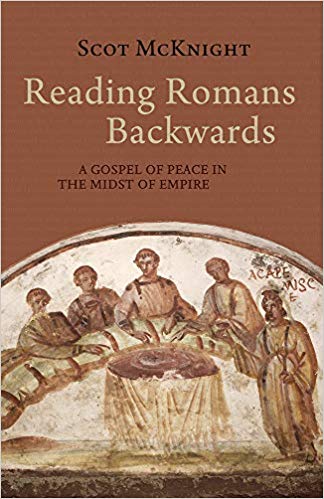BEN: p. 120—‘works of the Law’. What 4QMMT actually says is ‘these are some of the works of the Law’, and while it is right to emphasize that Paul is referring specifically to the Mosaic Law, circumcision being the gate way into it, I don’t see any reason why Paul doesn’t mean all the works of the Mosaic law when he uses the phrase. After all, as you say Paul emphasizes that Torah-keeping is not necessary for Jews or Gentiles as a means of righteousness or salvation. It’s fine as adiaphora, as long as it’s not imposed on the Gentiles. But one has to ask why Paul takes such a view— that the observance of the Mosaic Law is optional. Surely it is because he thinks the Mosaic covenant is obsolescent, and has a fading glory and has been superceded by the new covenant.
We don’t keep a law on the books in Lexington about not tethering your horse at the water trough in front of the county court house any more, because that law is obsolete. Understanding Paul’s approach to the Mosaic law requires a proper understanding of his covenant theology—- the new covenant is the fulfillment of the Abrahamic covenant, not a continuation of the Mosaic one which was temporary. The new covenant has its own law, the law of Christ, which does involve some reiteration of previous Mosaic commandments about adultery etc. but is fundamentally grounded in the new teaching of Christ, as is seen in the second half of Rom. 12-13. Comments?
SCOT: I’m glad to hear that about horses in Lexington. This issue of obsolescence, of supersessionism, is so fraught with political issues today and is tied so often (so I think) to pluralism that any suggestion like this makes some think we are troglodytes still holding on to now passé thoughts. Well, I’m passé. Galatians 3:19-26, so I believe, says the Torah was until Christ and now that Christ has come the Torah is no longer binding (on believers). OK, when Paul brings up works of the law I think Dunn and Wright have something nuanced about contextual clues – he’s talking about the acts of Torah observance that measure what Tom Holmen calls “covenant path markers,” those actions that express fidelity to the Torah. So, Yes, but this nuance deserves its weight.
BEN: Another issue the present chapter raises is, are you really saying Paul is only addressing some of the Jews (the weak and judgmental) in the audience and some of the Gentiles (the strong and arrogant), or are you saying that they are the particular focus of his concern, though he speaks often in more general terms? As I said, it’s hard to see just the weak and strong of Rom.14 as being the real focus of Rom. 3, or for that matter Rom. 4-5. Comments?
SCOT: My book, which I call an essay in exploring how to connect Rom 14-15 to the whole of the book, focuses on the pastoral strategy of this apostle to this set of house churches in Rome and this set of problems facing that set of house churches. So, I focus on that strategy, but I don’t think he’s onto Jews in general (at all).













